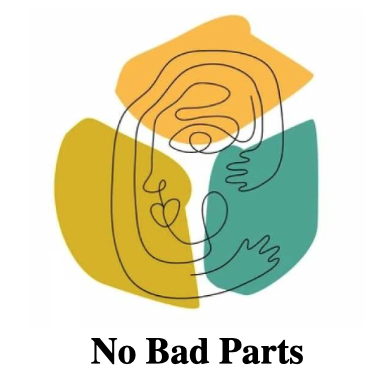No Bad Parts: Healing Trauma and Restoring Wholeness with Internal Family Systems Model / Richard Schwartz / 2021
No Bad Parts is a potentially revolutionary work of psychology and philosophy. No Bad Parts, written by the founder of Internal Family Systems, is in some ways a manifesto for IFS, outlining its core theory of self, methodology, and findings. The basic idea is to apply the tools of family therapy to the internal world of parts within us. Schwartz believes in the plasticity and positive potential of each part inside of us, including those who have taken on toxic roles for misguided reasons.
I will begin with my qualms: I am at once seduced and skeptical of IFS’s nonviolent approach. His belief that you can only transform toxic parts through love and compassion is an implicitly nonviolent approach to conflict internally and he sees the same systems dynamic play out in the level of geopolitics. I am enticed by the idea that the only way to heal the traumatized parts inside us--including those that are responsible for acts of violence or have other taboo desires--is to treat them with love and compassion. Schwartz claims to have successfully healed incarcerated pedophiles whose protective parts were caught in a toxic cycle of violence in misguided attempts to protect a victimized part. It’s difficult to know how much faith to put in the IFS approach in these extreme circumstances without a huge data set, which I’m not sure even exists yet. On the political level, I’m simply unsure whether nonviolence is a viable strategy against bad faith violent actors.
In Schwartz’s desire to spread his findings far and wide, he’s dipped into corporate psychology and even boasts of consulting with McKinsey and Company, a well-known ruling class consulting group with their hands in a number of ethically dubious, if not outright unethical situations. Both of my biggest criticisms come from a lack of political clarity on Schwartz’s end. Schwartz himself admits IFS was held back from his own slow pace in addressing engaging racism, which he manages to do admirably in meditations and transcripts where he explores a client’s internal racist parts. I am looking for IFS reading that engages trans issues and marxist thought at this point.
Onto the positive, IFS’s philosophy of the mind resonates deeply with me, providing more satisfying answers than the bits of psychoanalysis and Buddhism I have engaged with. Schwartz ultimately arrived at believing there is a russian stacking dolls of selves within us if we keep digging. They blend and unblend kinda like the gems in Steven’s Universe. He has also found that when--after a lot of IFS therapy--people begin to identify the self they most identify with, they find someone with clarity, compassion, courage, confidence, calm, connectedness, curiosity, and creativity. This definition of the self feels revolutionary in that it is helpful, useful, and scientifically documented--at least with IFS therapy clients. Although I wonder what really makes this self any different than a particularly well-put-together protector or manager, I do dig that IFS practice would seek to bolster these seven characteristics and if this self is a manager/protector, seek to prioritize its stewardship of the soul. Where I deviate from IFS and more likely connect with more indigenous and Buddhist thought is that I’m not sure if my inner personalities always manifest as humans. I got at least one blue dragon swimming around in there.
In discussing IFS philosophy with Anushka, we went back and forth between psychoanalytic ways of understanding the mind, as opposed to IFS. Interestingly enough, we landed on a metaphor of the self having wave-particular duality like light. The metaphor goes like this: if you treat the interior world as a wave, like psychoanalytic, you can follow that logic successfully to understand and treat yourself; on the other hand, if you treat the elements like atomized particles, like IFS, you can follow that logic successfully to understand and treat yourself. I mention this not because its particularly insightful, but because Schwartz used the same metaphor to discuss Self energy and our connection to a higher universal self. Here is perhaps where the book got its most woo-woo with segways into quantum physics and so forth. Despite the toe in perhaps magical scientific thinking, I do think Schwartz spoke with enough hedging and humility to not spoil my trust of his scientific mind. The mind is an inherently subjective field of study, so I don’t think we can reasonably expect folks to be strictly scientific when exploring topics of curiosity that we don’t have clear answers to yet. I am curious what a more scientifically studied mind would make of this chapter.
I especially recommend the embodiment chapter for helping me understand better how my selves can press buttons in my body, triggering somatic symptoms and drives, depending on my stewardship of their needs.
Despite whatever wrinkles I identify, I find IFS so powerful a tool I can’t help but give this a 5/5.
